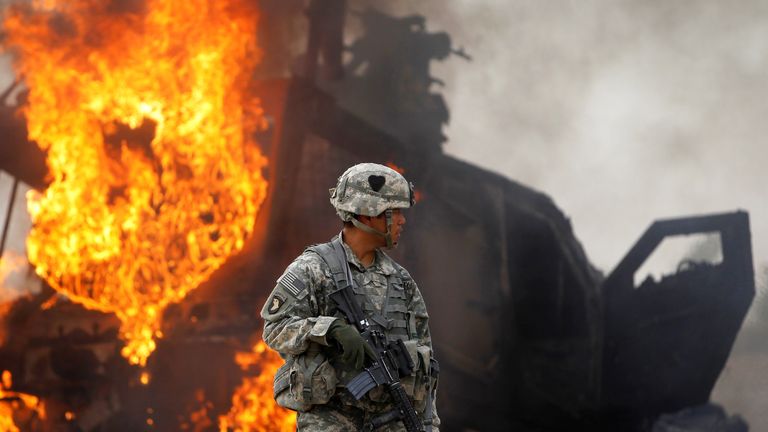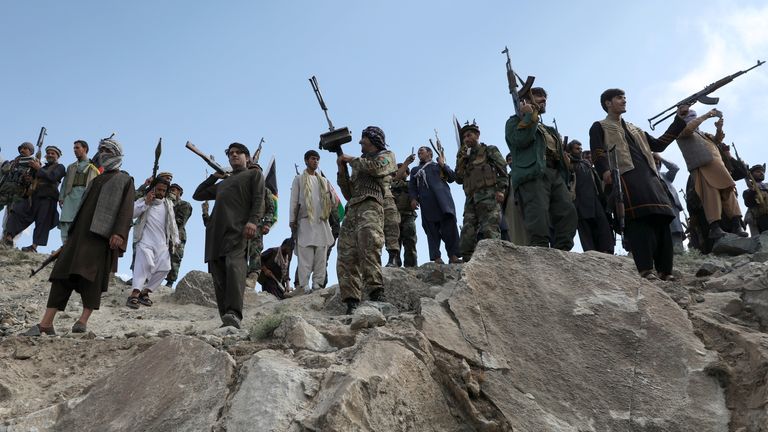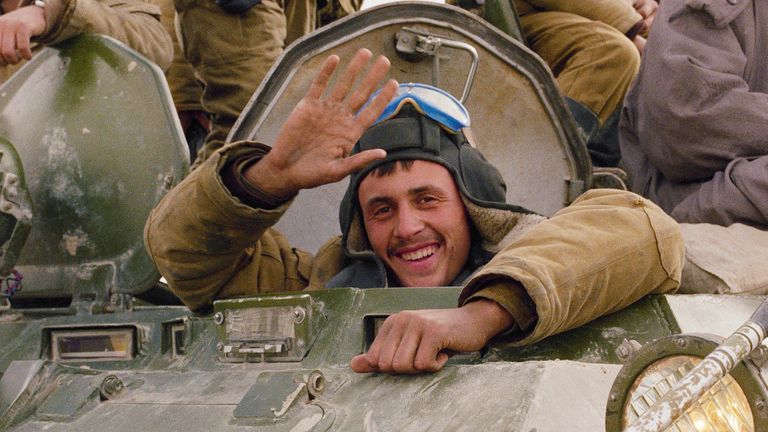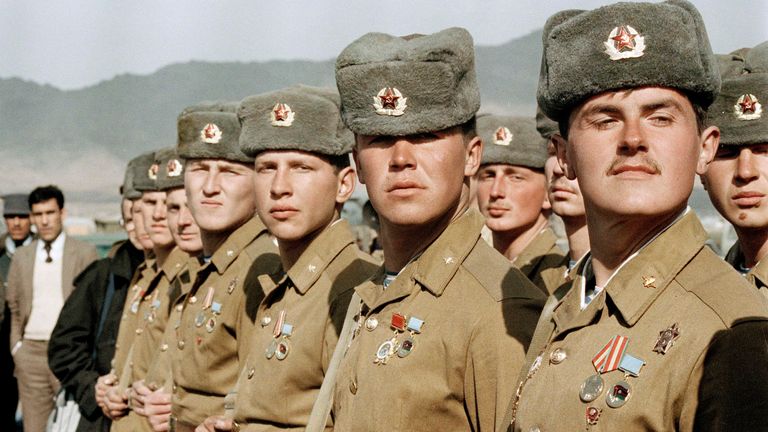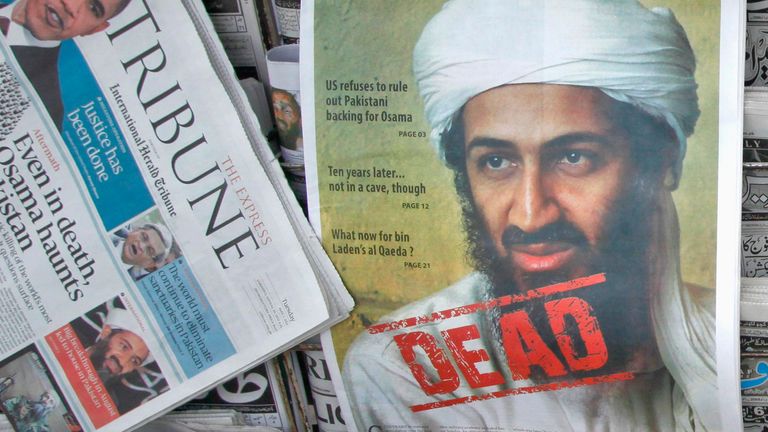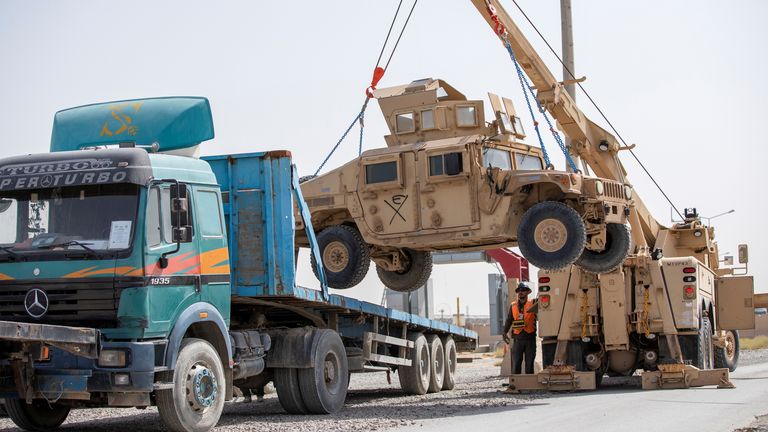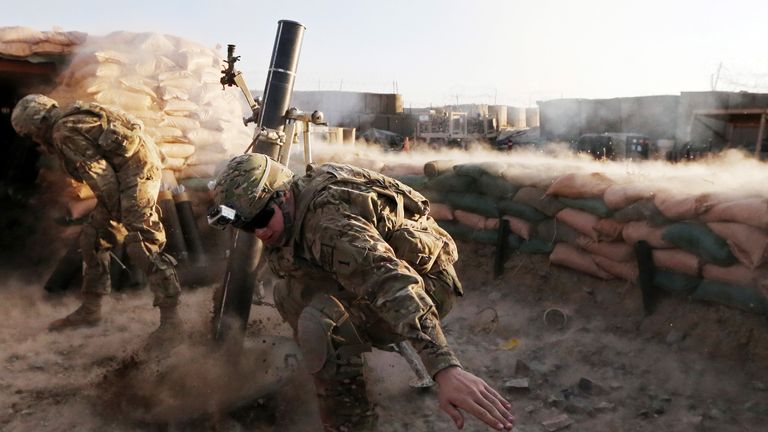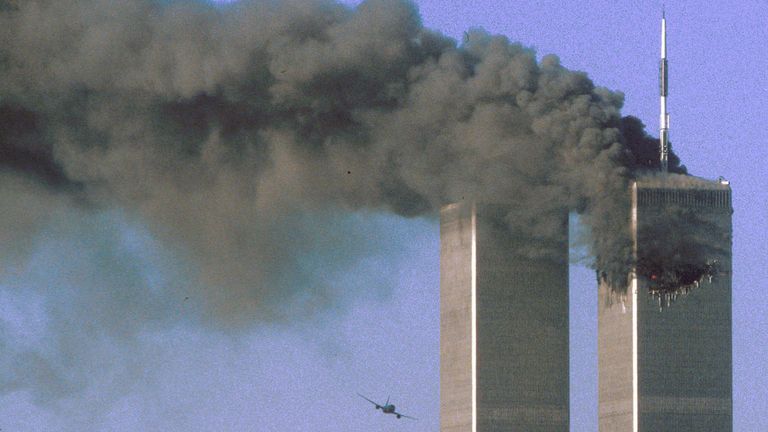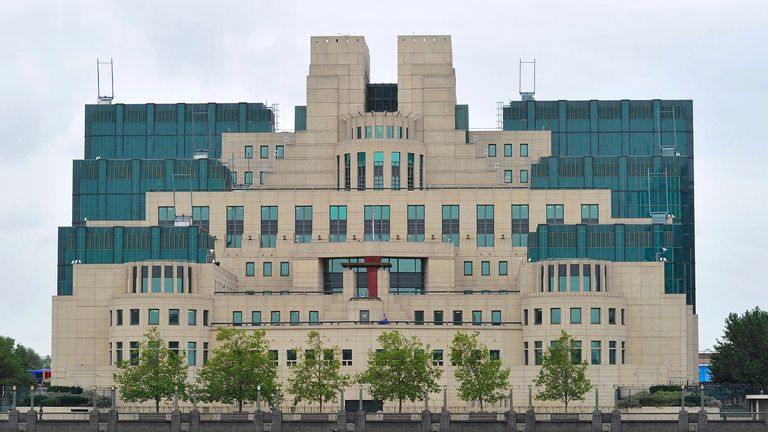The threat to the UK from terrorist groups like al Qaeda will grow if allies turn their back on Afghanistan after troops withdraw, Sir Alex Younger, the ex-head of MI6, has warned.
The former spy chief said it would be an “enormous mistake” to neglect the country as happened back in 1989 when a previous intervention by the then Soviet Union ended.
Sir Alex, a veteran of the fight against terrorism following the 11 September attacks on America in 2001, predicted the most likely outcome for Afghanistan now is civil war between a resurgent Taliban and the US and UK-backed Afghan government.
In his first-ever television interview, he also revealed:
- He was “very worried” Russia could exploit the crisis in Afghanistan to harm the UK and its allies
- His frustration at a failure by the international community to meet an ambition to rebuild the Afghan state, saying the goal turned out to be “unrealistic”
- And regret at a US decision under Donald Trump to set an exit date for US troops rather than use the promise of withdrawal better as leverage over the Taliban
Sir Alex, 57, who retired as chief of the Secret Intelligence Service (SIS) last September, gave his thoughts on Afghanistan as a 20-year intervention by the US, Britain and other NATO allies ends.
He recalled what they had discovered when they invaded in 2001 to hunt then al Qaeda leader Osama bin Laden and oust the Taliban regime that had accommodated him.
“It was a level of terrorist infrastructure that could only have been imagined before we got there – training camps that would have been not out of place in a sort of conventional military or special forces barracks,” the career intelligence officer said.
The terrorist threat was able to evolve in Afghanistan in the chaotic years that followed the end of the Soviet invasion.
“I’ve talked about the significance of the date of 9/11, 2001. I think the other, very significant date is 16 February 1989, which is when the Russians left Afghanistan.
“What the West then did is turn their back on that country with all of the consequences that I’ve laid out.
“And I think, for the reasons that you’re talking about, it would be an enormous mistake for us to do that again,” Sir Alex said.
“The reality is that there are groups there, we’ve been very successful in disrupting both Daesh (Islamic State) and al Qaeda.
“They’re on the back foot. But it would be wrong, patently, to claim that they have gone away. And they have the capacity to regenerate.”
The US-led invasion and the so-called “war on terror” inflicted significant harm on al Qaeda, taking away the group’s training camps and killing or capturing top commanders, including Bin Laden who died in a US raid in neighbouring Pakistan in 2011.
But a United Nations report published in June said up to 500 al Qaeda fighters were thought to be in Afghanistan.
Islamic State has also emerged inside the country in recent years.
Militants linked to that group number about 2,000 but they appear to be in small, decentralised cells.
Sir Alex said: “We are going to have to think very carefully in the absence of troops on the ground about how we deal with that.
“It’s vital that we don’t make the mistakes that we made last time around.”
Asked what the consequences would be if the West did turn its back again, he replied: “I think if terrorist groups are allowed to regenerate somewhere like Afghanistan, it will lead to more threat on the shores of our country and our allies.”
He tempered this warning by noting that the Taliban had learnt it would be made to suffer if the group again allowed their territory to be used as a launchpad for international terrorism.
“It seems to me that they will feel the restraint from the example posed by history,” the former spymaster said, before adding: “But there is a perfectly cordial relationship between al Qaeda and the Taliban.
“And I question whether they will be able to assert, should they gain control of Afghanistan, the sort of control that we would need, even if they wanted to.”
Sir Alex said he believed the US-led intervention had been a success in combatting the terrorist threat in Afghanistan and had helped to make the streets of the UK safer.
But he said there can never be a purely military solution to a terrorist problem.
It also requires a political effort to create alternative options other than violence.
In Afghanistan, well-meaning ambitions to turn the country into a thriving democracy ultimately failed to deliver.
“With hindsight, the aspiration to build a nation was not supported by a political plan and was in the event unrealistic,” Sir Alex said.
He continued: “I am frustrated by the way in which we have failed – we the international community have failed – to match our ambitions with a proper political plan.”
He said efforts to negotiate with the Taliban should have started sooner.
The former intelligence officer said he regretted how, when negotiations with the Taliban were opened, the previous Trump administration last year announced a date for the US exit, rather than use the prospect of leaving to exert greater pressure.
“I think ideally we would have kept that in reserve and made a withdrawal conditional on … the Taliban engaging in the (Afghan) political process more actively than they have,” he said.
Sir Alex offered three scenarios for Afghanistan: Some kind of compromise between the Afghan government and the Taliban; a full Taliban takeover; “and then the third is essentially civil war… and it seems to me that that probably is where we are headed”.
Asked whether he was worried that Russia might seek to exploit the security crisis to inflict further harm on the West, he said: “I’m very worried about it.”
The UK and the US suspected Moscow of supporting the Taliban when the militants were fighting US and British troops in Afghanistan.
There have also been reports that a unit within Russia’s military intelligence agency, the GRU, offered bounties to the Taliban to kill NATO forces.
Russia has denied these allegations.
The US-led campaign in Afghanistan cost trillions of dollars, with tens of thousands of people killed, the majority of them Afghans.
Asked why what happens in Afghanistan matters to the UK, Sir Alex said: “I am proud of what we have done there when I look at the situation that existed in 2001, when I look at the extent of the terrorist infrastructure and when I consider the damage that could and would have been done if we had allowed that to continue.
“But I’m also very thoughtful about what we have learnt.
“What we have learnt is that whilst the initial solution is military and security and about disrupting these groups, the solution has to be political… I’ve learnt: the idea that we can create a democracy in our image in a country like that is out of reach.”
Sir Alex, then a more junior spy, was at MI6’s London headquarters on 11 September 2001 when news broke of civilian planes hitting the World Trade Center in New York and the Pentagon in Washington.
A fourth plane came down in a field in Pennsylvania.
“I remember thinking: Is this going to happen here? And if it does, this building will be the obvious place to do it. It’s the iconic secret building in the UK,” he said.
“The uncertainty was extraordinary.”
He added: “I knew that this was the thing that was going to define the rest of my career. And that is exactly as it turned out.”

